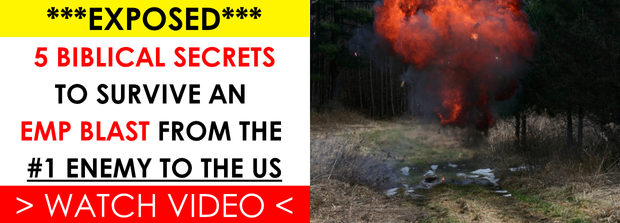In 2025, Americans live under unprecedented surveillance. Government agencies and corporations constantly collect data about our daily lives. Step outside and street cameras or license plate readers might log your movements. Use your smartphone and dozens of apps silently track your location and habits. Even at home, “smart” appliances and electric meters can transmit information about your activities.
Preppers know that staying under the radar is crucial. Privacy isn’t about hiding bad behavior; it’s about preserving your freedom to live without constant oversight. In a disaster or political turmoil, a big digital footprint can make you a target. You can still protect your privacy if you stay aware and use some low-tech strategies.
The Surveillance State: Government and Corporate Tracking
Agencies like the NSA vacuum up vast amounts of communications and location data. Automated license plate readers scan thousands of cars per minute, creating records of where you drive. It’s not just government watching. Private companies are tracking us too.
Your phone is essentially a tracking beacon you carry willingly. Apps harvest your location and personal details, which data brokers package and sell. Law enforcement can even buy phone location data from brokers to sidestep warrants. Many people accept this data harvest as the price of modern life, but for those who cherish self-sufficiency it signals the disappearance of private life.
Tech Tools of Surveillance: Smartphones, Cameras, and Smart Grids
Smartphones are among the biggest surveillance tools. They constantly ping cell towers and Wi-Fi networks, and many apps seek access to your contacts and GPS location. If privacy matters, treat your phone as a risk rather than a necessity. Turn it off (or use airplane mode) when not needed, disable intrusive location permissions, and delete apps that snoop too much. In an emergency, a basic prepaid flip phone (a “burner”) is far safer since it isn’t linked to your identity or logging your every move.
Facial recognition cameras are now common in airports, police departments, stores, and even schools. The problem is these systems are often inaccurate – there have been cases of innocent people arrested due to false matches. Yet the technology keeps spreading. On the plus side, disguises work: in tests, face masks caused facial recognition error rates up to 50%[1]. Simply wearing a mask, hat, or sunglasses can make it much harder for cameras to identify you.
Smart gadgets in the home can also spy on you. Internet-connected TVs and speakers collect data and could be hacked or misused. One investigation found that certain smart TVs were logging every show watched and sending the info to advertisers. Smart electrical meters likewise send frequent power-use readings from your house. In the wrong hands, that data could reveal your daily routine (like when you’re home). Think twice before upgrading everything to a “smart” device. Often an old-fashioned appliance or tool works fine and won’t broadcast your personal habits.
Why Privacy Still Matters for Preppers
For preppers, privacy is a key part of OPSEC (operational security); it’s about not making yourself an easy target. You wouldn’t announce to everyone that you’ve stockpiled a year’s worth of food; likewise, don’t broadcast your preparedness through digital footprints.
In a grid-down disaster or political crisis, privacy becomes even more critical. Digital networks might fail or be turned against the public. Data trails could be used to identify people who have supplies. Those who keep a low profile and maintain offline capabilities will be harder to track and better able to function when others are cut off. In a crisis, information control is survival. In other words, privacy isn’t paranoia; it’s preparedness.
Low-Tech and Off-Grid Privacy Strategies
You don’t need to ditch technology entirely to reclaim some privacy. Here are some realistic low-tech ways to stay private even in today’s connected world:
- Practice Digital Minimalism: Limit your use of internet-connected devices. Disable unnecessary app permissions and location services on your phone. Don’t carry your smartphone everywhere; leave it at home on some errands to reduce your digital footprint. Every bit of data you don’t produce is data that can’t be used against you.
- Use Off-Grid Communications: Keep communication tools that don’t depend on the grid. HAM radios and walkie-talkies or CBs let you communicate without leaving a digital trail. When you do carry a cell phone, consider keeping it in a signal-blocking Faraday pouch until you need it. This prevents your phone from connecting to any network (and tracking you) when you want to stay off the radar.
- Burner Phones and Private Browsing: Prepaid “burner” phones can be bought with cash and used without tying them to your name. Use one for sensitive calls or texts instead of your regular phone. For internet use, take advantage of privacy tools: use a browser’s private/incognito mode or a search engine that doesn’t track you, and consider a VPN or Tor to hide your online identity. Also avoid logging into personal accounts on public Wi-Fi; assume someone could be monitoring open networks.
- Old-School Tactics (Cash, Maps, Disguises): Live more of your life offline. Pay with cash instead of cards to avoid leaving a transaction log. Use paper maps or offline map apps for navigation rather than GPS apps that broadcast your location. And don’t underestimate low-tech camouflage: a hat, sunglasses, or face mask can prevent your face from being recognized by cameras[1].

Balancing Privacy and Preparedness
Living privately is a balancing act. You don’t have to abandon modern conveniences, but you should use them on your terms. Keep the tech that benefits you, but be deliberate about what information you give away and when. Remember, the goal is to be prepared, not paranoid. Small changes (like paying in cash or turning off your phone) can greatly boost your privacy without isolating you from the world. Every step you take away from constant connectivity is a step toward greater freedom and self-reliance.






References
Facial recognition accuracy drops when masks are worn – Iris ID (NIST). https://www.irisid.com/nist-facial-recognition-accuracy-drops-when-masks-are-worn/
Read full article here


